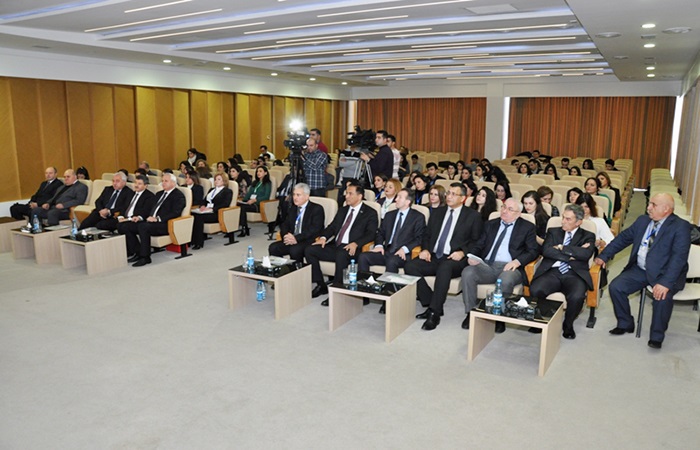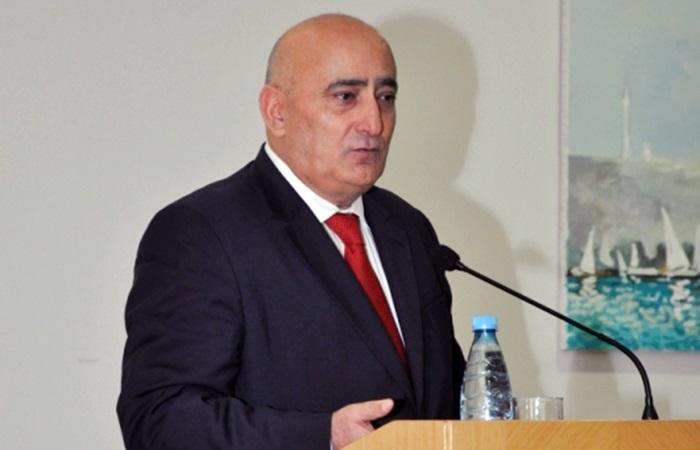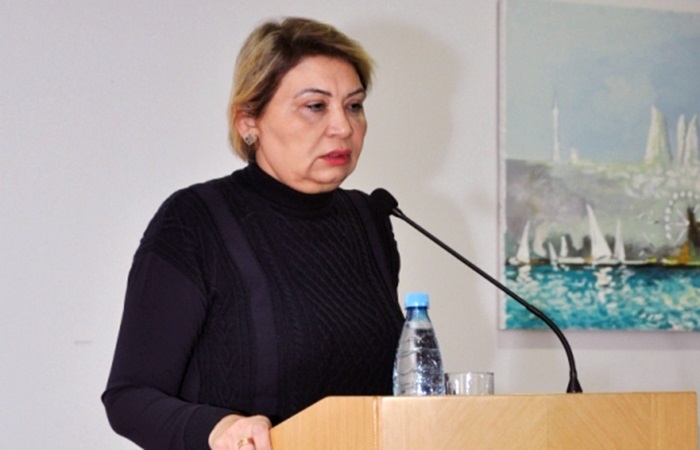- A-
- A
- A+
Republican scientific-theoretical conference on "The Caucasus in the conditions of great shocks: historical experience, the modern period and prospects" held
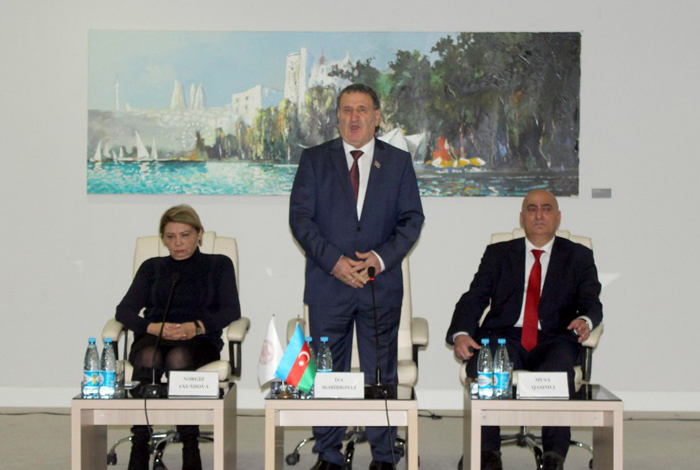
ANAS by the support of the Institute of Caucasus Studies held the republican scientific and theoretical conference on "The Caucasus in the face of great upheavals: historical experience, the modern period and prospects" on December 4.
More than 100 scientists and researchers representing ANAS institutes of Caucasus Studies, Philosophy, Economics, Oriental Studies, History, Baku State University, Azerbaijan University of Languages, Baku Slavic University, Sumgait State University, Azerbaijan University of Tourism and Management, Baku Eurasian University and others took part at the event.
The conference was organized at the Central Scientific Library.Then, ANAS Vice-President, Academician Isa Habibbeyli. Stressing the great social and political significance of the conference, Academician wished successes to all participants of the event. Isa Habibbayli noted that, for a short period of its activity the Institute of Caucasus Studies carried out a considerable number of successful events, the problems put forward by the institute are always of particular interest to young researchers.
Academician-Secretary of ANAS Department of Social Sciences, Academician Nargiz Akhundova also spoke at the conference. Academician noted that, Caucasus region, which has become an arena of intense geopolitical rivalry since the beginning of the 18th century is still influenced by political and economic processes taking place in the world: "The Caucasus region, which for thousands of years has been connecting Europe with Asia is also a junction of the Christian and Islamic civilizations. Being an important strategic platform, this region today has become a center of contradictions and shocks, clashes of geopolitical and economic interests of various states, ethno-confessional conflicts".
Then, Director of the Institute of Caucasus Studies, corresponding member of ANAS Musa Gasimli delivered a report on "The South Caucasus 100 years ago and today: a comparative analysis". In his report, the speaker compared and analyzed the socio-political, economic and military situation that, arose in the Caucasus after the collapse of the Russian Empire in 1917, with the corresponding situation that arose in the Caucasus after the collapse of the USSR in 1991. The scientist talked about the process of artificial creation of Armenia and groundless territorial claims made to Azerbaijan by Armenia in these difficult years on the Azerbaijani lands and revealed the essence of its bloody occupational policy. M.Gasimli also touched upon the issue of Armenia's claims to the lands of Georgia, the role of the foreign factor in the origin of conflicts and the war of the Dashnak Armenia against Georgia. The report carried out a general analysis of the situation in the North Caucasus in both periods, the regional policy of international organizations and large states, international projects being implemented, the considerations of the national leader Heydar Aliyev and the President of the Republic of Azerbaijan Ilham Aliyev, in connection with the situation in the Caucasus.
Then, under the chairmanship of eminent scientists, the sectional sessions of the conference began: "Countries of the Caucasus in the period of the first and second independence: comparative political analysis", "Conflicts, territorial seizures and terror in the Caucasus", "Internal political and social situation in the Caucasus", "Foreign policy and relations of states in the Caucasus". At the meetings, were listening reports, touching on issues such as the internal socio-political situation in the countries of the Caucasus during the first and second independence, conflicts, territorial claims and seizures in the Caucasus, the Nagorno-Karabakh conflict that arose as a result of Armenia's military aggression against Azerbaijan, terrorism, relations and have been extensive discussions on foreign policy of the states of the Caucasus, regional policy of large states and international organizations, activities of the Armenian organizations directed against the Georgia, Iran, Russia, etc.
©All rights are reserved. Citing to www.science.gov.az is necessary upon using news.
Similar News
Links
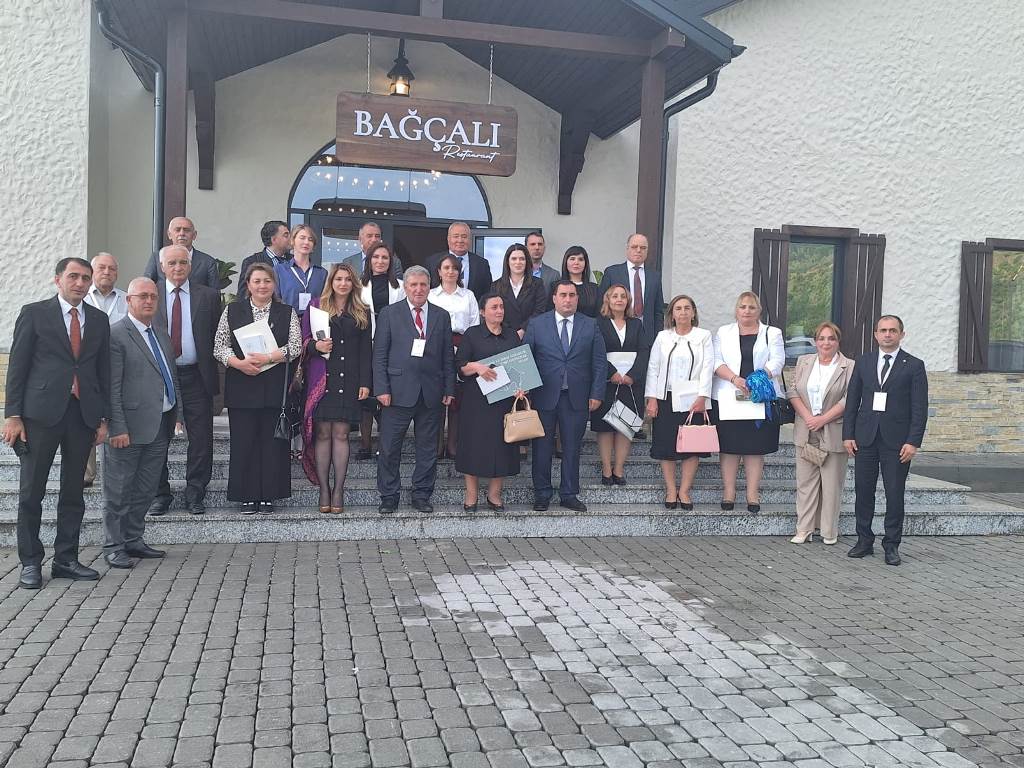

 Elm TV
Elm TV
 Photo
Photo
 Video
Video
